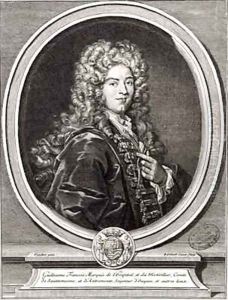Foucher, Nicolas Paintings
Nicolas Foucher was a French artist whose life and work spanned the latter half of the 17th century and the early years of the 18th century, a period marked by significant political, cultural, and artistic developments in France. Born in 1644, Foucher lived through the reigns of Louis XIII, the regency of Anne of Austria, and the glorious era of Louis XIV, the Sun King, whose patronage of the arts led to a flourishing of French culture and the establishment of France as a leading power in European art and politics.
Foucher was primarily known for his work as an engraver and printmaker, a profession that held considerable importance in an era before the widespread availability of photographic reproduction. Engravers like Foucher played a crucial role in the dissemination of art, making the works of painters and sculptors accessible to a broader audience and contributing to the spread of the artistic styles and ideas that defined the period. His work would have involved meticulous craftsmanship, translating the detailed works of artists into engravings that could be printed and distributed.
Although not as widely known as some of his contemporaries, Foucher's contributions to the world of French art should not be underestimated. His engravings would have captured the essence of the Baroque and early Rococo styles that dominated French art at the time, characterized by drama, rich detailing, and a movement away from the rigid forms of earlier periods. Through his prints, Foucher contributed to the spread of these styles beyond the confines of the royal court and the wealthy elite, making them accessible to a wider section of society.
The latter part of Foucher's career coincided with the beginning of the Rococo period, a time when art began to reflect the more playful, ornate, and intimate aspects of French society. While the Baroque style was closely associated with the grandeur and power of the Sun King, Rococo art moved towards lighter themes, often focusing on love, nature, and light-hearted frivolity. As an engraver, Foucher would have been at the forefront of this transition, capturing the changing tastes and preferences of the period.
Nicolas Foucher died in 1703, leaving behind a body of work that, though not as celebrated as that of some of his peers, offers valuable insight into the artistic transitions of late 17th and early 18th century France. His engravings serve as a testament to the skill and artistry of engravers of his time, who played a pivotal role in the cultural and artistic achievements of the French Golden Age.
